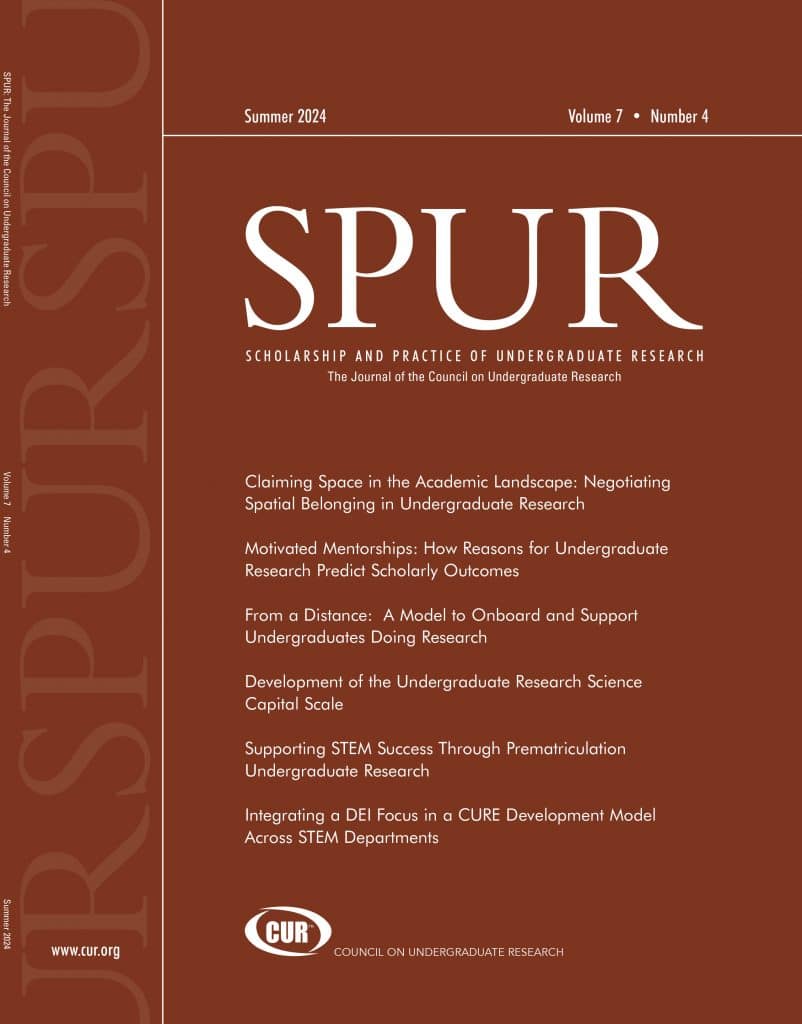SPUR (2024) 7 (4): https://doi.org/10.18833/spur/7/4/7
Mentorship experiences involve a variety of motives, but some are more effective than others. The authors hypothesized that personal autonomous reasons (PARs, “for me”) and relational autonomous reasons (RARs, “for us”) for engaging in undergraduate research would be associated with better perceived and scholarly outcomes, whereas controlled reasons (CRs, “I have to”) would be associated with worse outcomes. Fifty-five undergraduate students presenting their mentored projects at university-hosted poster events completed surveys indicating their reasons for working on their project, their perceptions of their project and mentorship, and the number of past and planned future presentations, projects, and mentorship experiences. The results indicated that both PARs and RARs were associated with positive outcomes, but PARs were mostly associated with the project, whereas RARs were mostly associated with the mentorship.
Recommended Citation: Gore, Jonathan S., Miya Carmichael. 2024. Motivated Mentorships: How Reasons for Undergraduate Research Predict Scholarly Outcomes. Scholarship and Practice of Undergraduate Research 7 (4): 31-36. https://doi.org/10.18833/spur/7/4/7
More Articles in this Issue
No posts found


